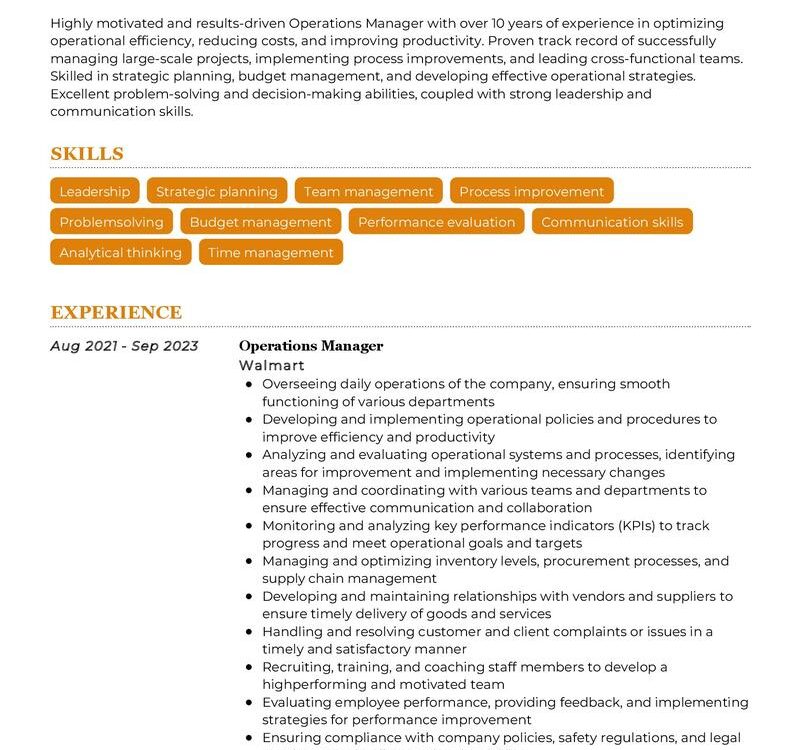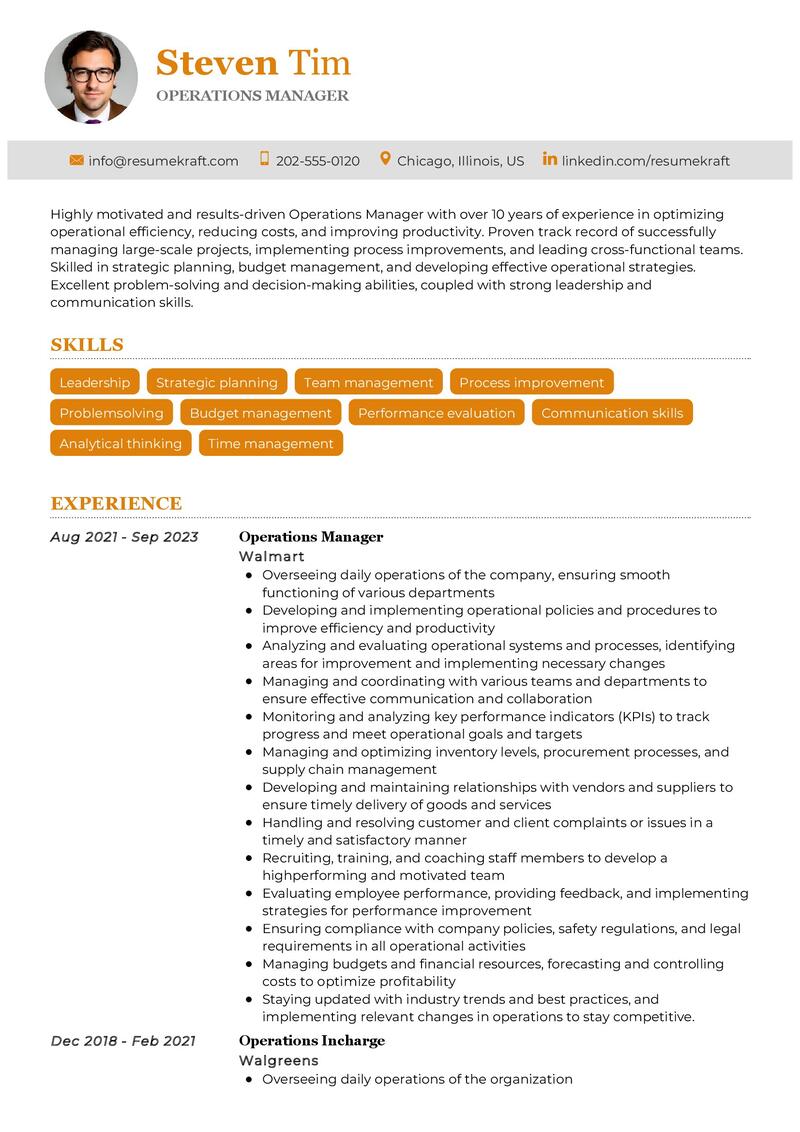Understanding the Role of an Operations Manager
As businesses strive for efficiency and growth, the role of an Operations Manager becomes increasingly crucial. An Operations Manager serves as the backbone of an organization, orchestrating various functions to ensure smooth operations and optimal performance. Let’s delve deeper into the multifaceted role of an Operations Manager, exploring the responsibilities, skills, and qualifications required for success in this dynamic field.
Job Requirements for Operations Manager
Becoming an Operations Manager entails meeting specific criteria and possessing a diverse skill set. Below are the key requirements:
- A Bachelor’s or Master’s degree in Business Administration, Management, or a related field.
- Demonstrated experience in operations management, showcasing leadership and problem-solving skills.
- Proficiency in project management methodologies and tools.
- Strong communication and interpersonal skills, essential for collaborating with diverse teams.
- Analytical mindset with the ability to interpret data and make strategic decisions.
- Experience in process improvement and optimization.
- Knowledge of industry regulations and compliance standards.
Securing additional certifications in project management or operations can enhance your profile and demonstrate your commitment to professional development.
Responsibilities of an Operations Manager
The role of an Operations Manager encompasses a wide range of responsibilities, including:
- Developing and implementing operational strategies to optimize efficiency and productivity.
- Overseeing day-to-day operations and ensuring compliance with company policies and procedures.
- Managing budgets and resources effectively to meet organizational objectives.
- Identifying areas for process improvement and implementing solutions to enhance workflow.
- Coordinating with various departments to streamline operations and achieve strategic goals.
- Monitoring performance metrics and analyzing data to identify trends and opportunities for growth.
- Leading and motivating teams to achieve excellence and foster a positive work culture.
Each responsibility is integral to the success of the organization, requiring a blend of strategic thinking and hands-on management.
Writing an Operations Manager Resume
Crafting a compelling resume is essential for showcasing your qualifications and experiences as an Operations Manager. Here are some tips to create an impactful resume:
- Highlight your leadership experience and achievements in previous roles.
- Quantify your accomplishments with specific metrics to demonstrate your impact.
- Include relevant keywords from the job description to optimize your resume for applicant tracking systems.
- Showcase your problem-solving skills and ability to drive process improvements.
- Tailor your resume to the specific job you’re applying for, focusing on relevant experiences and skills.
Remember to proofread your resume carefully and ensure it presents a clear and concise summary of your qualifications.
Skills Required for Operations Manager
Successful Operations Managers possess a diverse skill set that enables them to effectively manage complex operations. Here are some essential skills:
Soft Skills:
- Leadership and team management
- Communication and interpersonal skills
- Problem-solving abilities
- Strategic thinking
- Time management and organization
Hard Skills:
- Project management
- Data analysis and interpretation
- Budgeting and financial management
- Process optimization
- Regulatory compliance
These skills form the foundation for success in the role of an Operations Manager, enabling you to effectively manage and optimize operations within an organization.
Common Mistakes to Avoid in Your Operations Manager Resume
When crafting your resume, be mindful of common pitfalls that can diminish its effectiveness. Avoid these mistakes:
- Using generic language that fails to differentiate you from other candidates.
- Overlooking the importance of quantifying your achievements with specific metrics.
- Neglecting to tailor your resume to the specific job you’re applying for.
- Failing to proofread your resume for errors and inconsistencies.
- Omitting relevant skills and experiences that showcase your qualifications for the role.
By avoiding these mistakes, you can create a resume that effectively highlights your strengths and experiences as an Operations Manager.
Key Takeaways for Your Operations Manager Resume
As you craft your Operations Manager resume, keep these key points in mind:
- Highlight your leadership abilities and track record of success in managing operations.
- Quantify your achievements with specific metrics to demonstrate your impact.
- Showcase your problem-solving skills and ability to drive process improvements.
- Tailor your resume to the specific job you’re applying for to maximize relevance.
By following these guidelines, you can create a compelling resume that effectively showcases your qualifications and experiences as an Operations Manager.
Finally, feel free to utilize resources like AI Resume Builder, Resume Design, Resume Samples, Resume Examples, Resume Skills, Resume Help, Resume Synonyms, and Job Responsibilities to create a standout application and prepare for the Operations Manager job interview.


